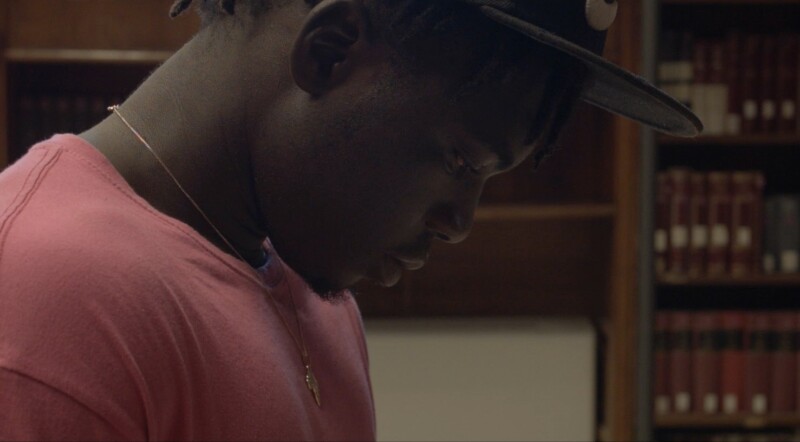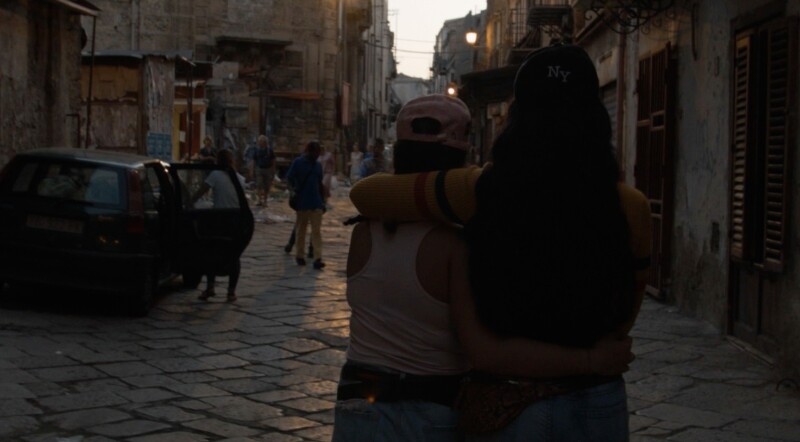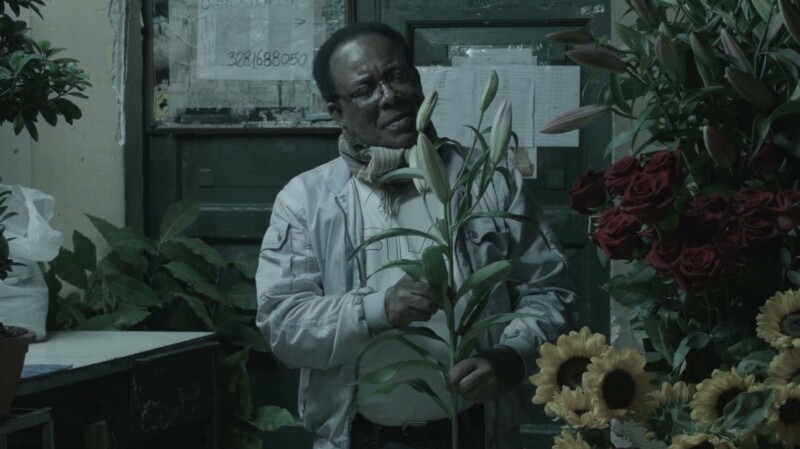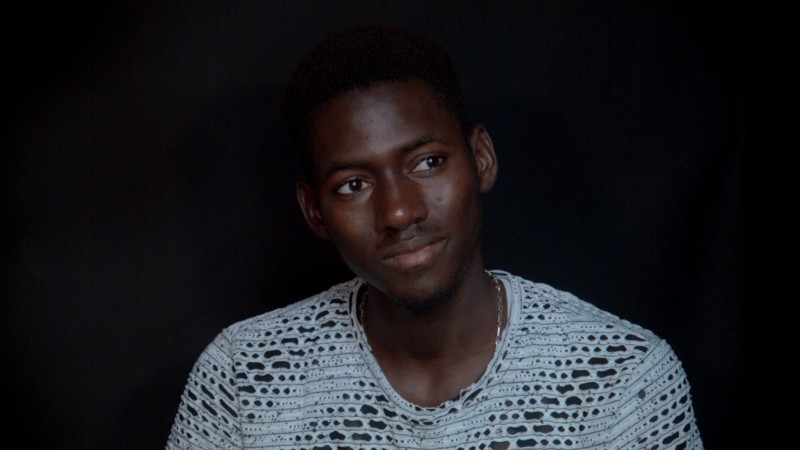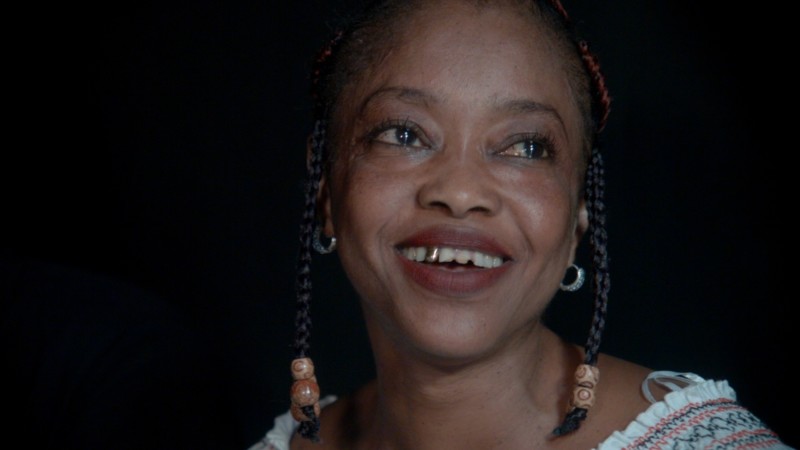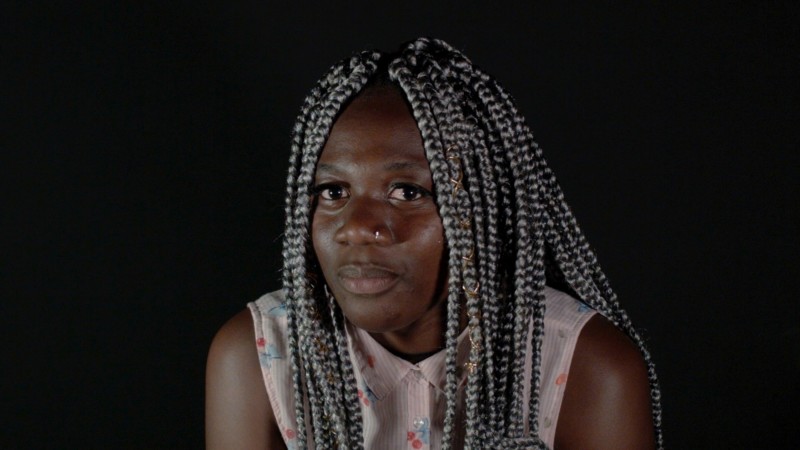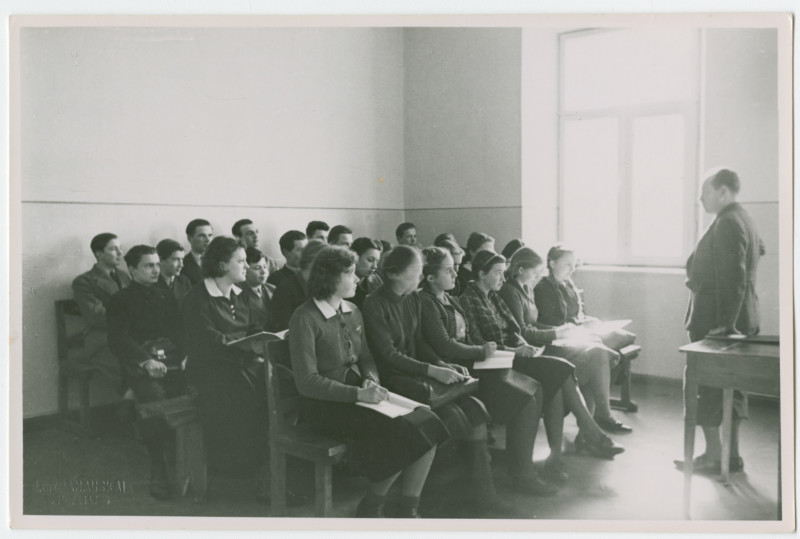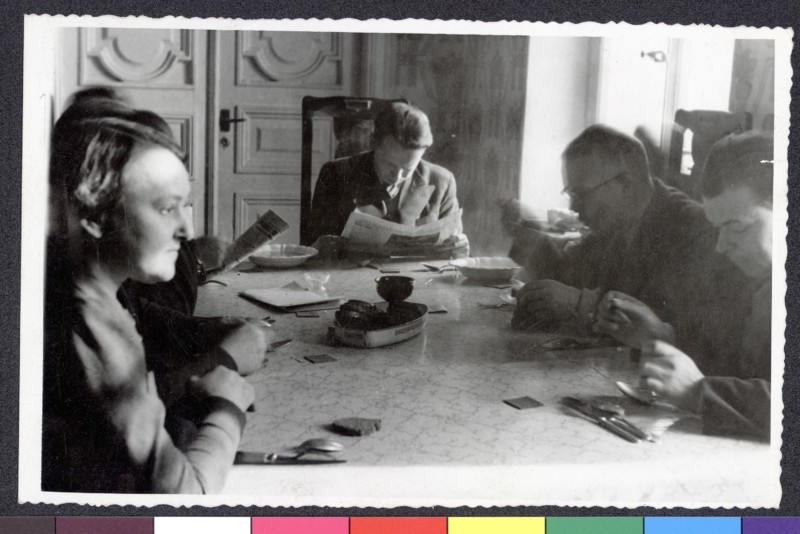If you send 50 euros for a person in Africa, he will not call you and tell you, “I received the money,” because it is very small for them. 50 euros is not money for them. But you know how you get it here. You understand? The problem is there.
If you tell them, “Since I came I am not working, I am going to school,” they will say: “What school are you going to? Are you mad? You old woman or old man in school again?” You see, problem … They think as soon as you come you start to work and get this fast money. No, it’s not like that. “You went to school here, you have your certificates. You speak English and French. You go there, starting school …” It’s not the same language, not the same schools and regulation. The problem is very big.
[The following passage of Kadija’s interview is not part of the film excerpt that is shown here, but it is following after what she is saying in the video.]
Sfida means challenge. We all have different types of challenges. We have fight challenges, we have success challenges, but as for me, I am talking about what is for myself – to leave my country to go to another one is a big challenge. We have a different type of living; the living is different. If you leave the country for another country you have so many intentions. For example in Italy – the first time I was in Italy, I didn’t know how to say ‘Ciao’. I just watched people. But thank God that today I picked up my challenge to go to school. I do not say I speak Italian very well but I can understand. I am doing the course, which is a big challenge. The second one is to fulfill the challenge that brought me here. You know, I am a mother, I have a son I have to take care of. In the future I want to become someone important in the community, a good advisor. To advise is very important if you see someone is losing their life.
Kadija J. in an Interview in Palermo, 11 June 2019
Kadija J. has lived in Palermo for over two years. Because she suffers from a chronic heart-lung disorder and medical supplies in her homecountry Guinea was not sufficient, she and her husband came to Palermo. They have a son who they had to leave behind in Guinea.
In the video excerpt, Kadija talks about the difficulties she faces especially with regard to the Italian education system. She goes to school in Palermo, and the fact that she is not earning money off a job right away is something her family in Guinea does not understand. However, Kadija is empowered by the decisions she has made: She refers to the Italian word “sfida”, which means challenge, and talks about the challenges she has overcome in Italy. Kadija’s wish and challenge is to be involved in cultural mediation within the refugee community.
How were the films and fragments in Palermo made?
Diawara B. and Diallo S. from Giocherenda held a three-day workshop with six participants in Palermo: Glory M., Fatima D., Ismail A., Kadijatu J., Marrie S. and Mustapha F. Mixing different approaches and games, the group exchanged personal experiences and shared them in the black box in front of the camera. Furthermore, Fatima D., Ismail A. and Mustapha F. consented to being portrayed in short films by the We Refugees Archive film crew beyond the workshop. The portraits deal with their lives in the city.
Giocherenda is a professional organization led by, for and with young refugees in Palermo that offers storytelling games. Its aim is not to help refugees and support them, but the opposite: refugees bring locals together for the sake of exchanging their experiences with refugees.
The word Giocherenda stems from the Fula language Pular, primarily spoken in Guinea, and connotes solidarity, interdependence and strength generated from people getting together. Phonetically, it resembles the Italian word “giocare” (to play), which inspired the collective to develop games for the sake of producing narratives and personal memories.
Refugees’ perspectives
In the interviews, the film crew consciously abstained from screenplays and standardized questions. Instead, the refugees directed the course of the interview and discussed only those topics they were willing to speak about. With We Refugee Archive’s mission in mind, the participants’ personal experiences in Palermo and their visions for the near future was the rough focal point. Thus, experiences during and personal trajectories of forced migration to Europe were shared and discussed at the individual’s own will and not required nor elicited on demand.
Interviewer: Francesca Bertin
Camera: Max Sänger
Production: Francesca Bertin
